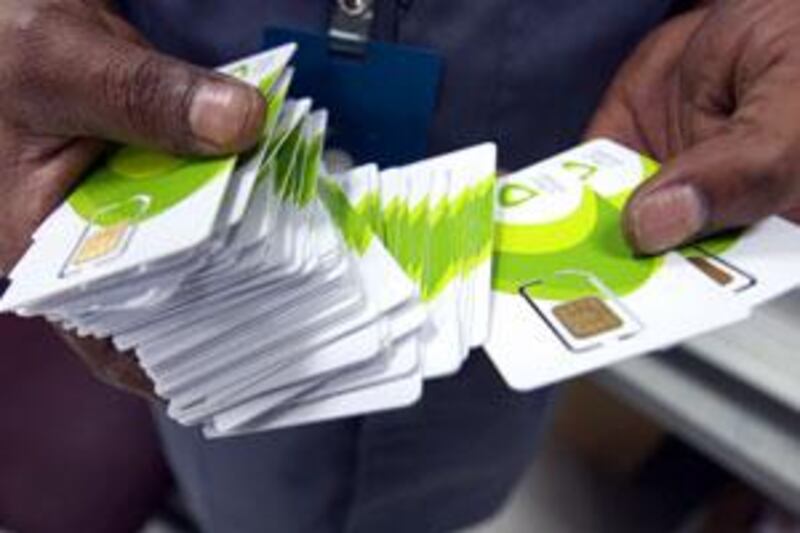The UAE's mobile penetration rate of more than two phone subscriptions for every person is "just the beginning", says Mohammed Omran, the chairman of Etisalat, predicting a boom in new lines. The official number of mobile lines in the country is expected to pass 11 million this week when Etisalat's telecommunications rival, du, releases its annual results.
Estimates of the UAE's population vary between 4.5 million and 5.5 million, meaning there are now on average as many as 2.4 mobile phone lines per person, more lines per person than anywhere else on Earth. Montenegro, the small republic in southern Europe, has the second-highest number of lines per capita, and is the only other nation with more than two lines per person. Mr Omran said the growth in mobile lines would be driven by machines such as ATMs and parking meters, each of which would eventually become separate accounts, or lines, when they were connected to the wireless internet system.
"There is much more of a market with machine-to-machine," he said. "Your car communicating, parking meter reading, electrical meter reading, water meter reading - these are machines that can relay data. These are machines that need to communicate with other machines. This is why I think there's much more market, not only in the UAE." Etisalat already includes this type of connection when reporting its subscriber numbers, which grew by almost 500,000 last year. A growing number of ATMs, payment card terminals and remote sensors are connecting to its network.
"There's 6 billion people in the human population, but there are more than 50 billion machines," Mr Omran said. Also included in the company's reported subscriber counts are users who have not made or received a call in the past 90 days - the definition of an "active customer" used by operators around the world. By comparison, du reports only active subscriber numbers, in line with a request by the telecoms regulator.
Etisalat has advised that its active customer base is about 90 per cent of its reported number, but it considers all of its customers valid for reporting purposes. "Their argument is that even if a subscriber is inactive, they still paid for the SIM and they will still pay the renewal fee," said Irfan Ellam, the vice president of equity research at Al Mal Capital. "As far as Etisalat are concerned, they are still generating revenues."
Despite a slowing economy and a population in decline, or only growing marginally, hundreds of thousands of new mobile lines are activated every quarter in the UAE. The Emirates has higher numbers of mobile lines because of its roles as a trade and travel centre. A cyclical workforce and large number of frequent business and leisure visitors have led to high penetration rates. But with population and visitor numbers expected to level out, onlookers say the era of conventional growth is nearing its end.
"Two hundred per cent penetration seems to be a maximum level around the world," said Simon Simonian, the vice president of research at Shuaa Capital. "It has been very difficult to predict the top, and every year we get surprised. But at this point we really are starting to reach the limits." Those limits will not stop operators from selling millions of new mobile connections in the coming years. While the market for mobile phone connections is oversupplied, new markets for other devices connecting to the mobile grids are in their infancy and expected to boom.
"Most of the next billion SIM cards sold will be for new kinds of machines, not people's phones," said Hilal Halaoui, a principal partner specialising in telecoms at Booz & Co. "The opportunities are absolutely enormous. You can see a need for a mobile connection for almost anything - cars, home appliances, sensors and meters, tablet computers - it is practically endless." dgeorgecosh@thenational.ae
tgara@thenational.ae





